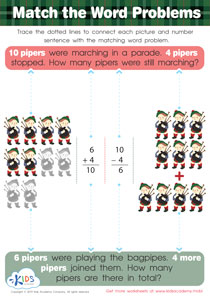Counting skills Normal Addition Worksheets for Ages 6-7
10 filtered results
-
From - To
Boost your child's counting skills with our engaging and effective "Counting Skills Addition Worksheets" designed specifically for ages 6-7! These printable worksheets from Kids Academy help young learners master the basics of normal addition through fun activities and colorful illustrations. They offer a step-by-step approach, aiding children in understanding and applying addition in everyday scenarios. Ideal for interactive learning at home or in the classroom, these worksheets promote critical thinking, enhance math fluency, and build a strong foundation for future arithmetic skills. Start your child's mathematical journey today and make addition enjoyable and easy!
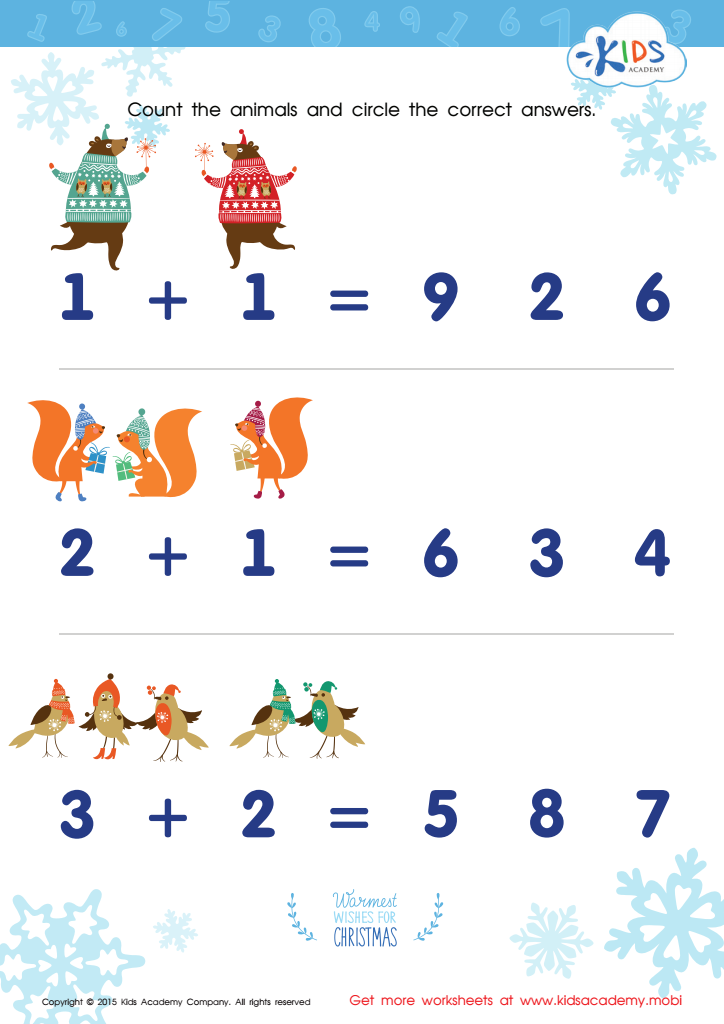

Count Funny Animals Worksheet
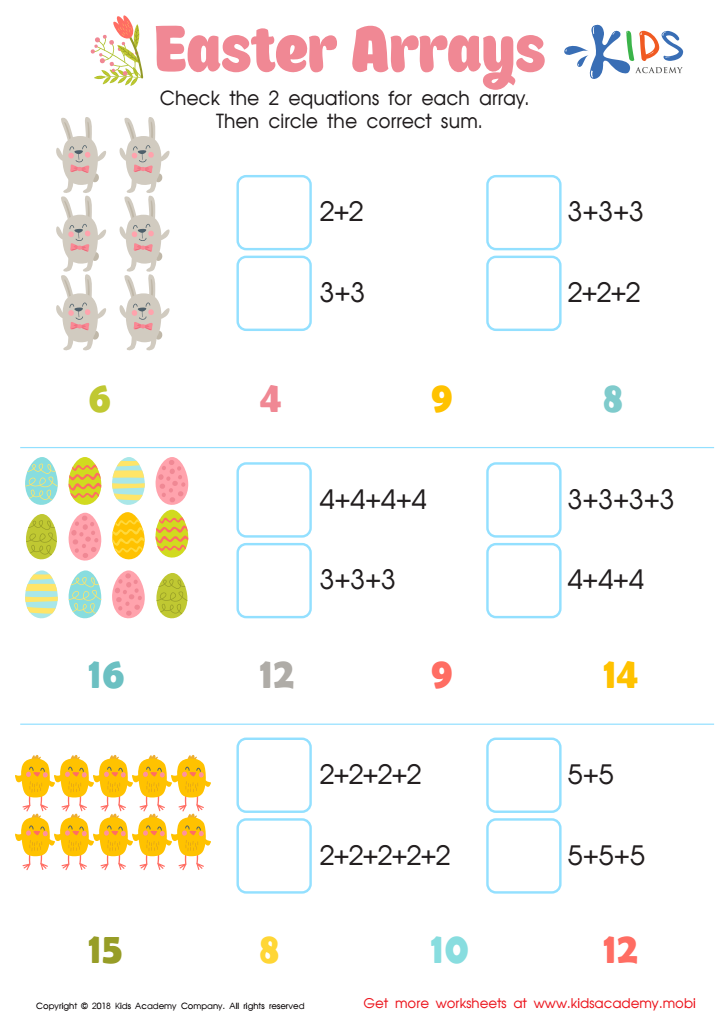

Easter Arrays Worksheet


Adding Flower Petals Worksheet
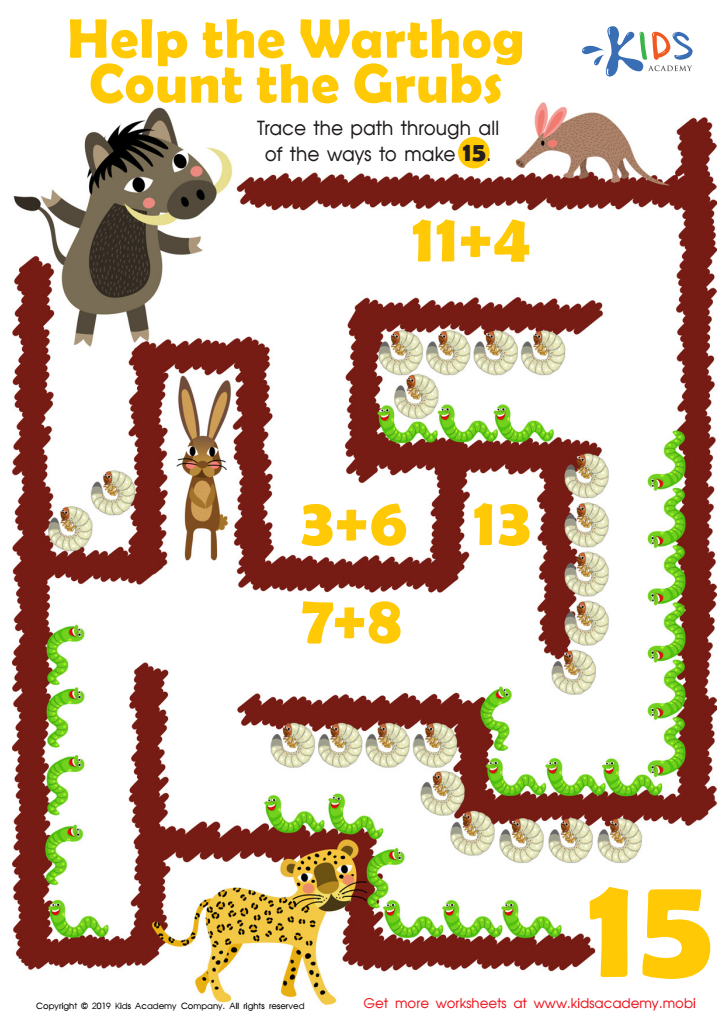

Help the Warthog Count the Grubs Worksheet
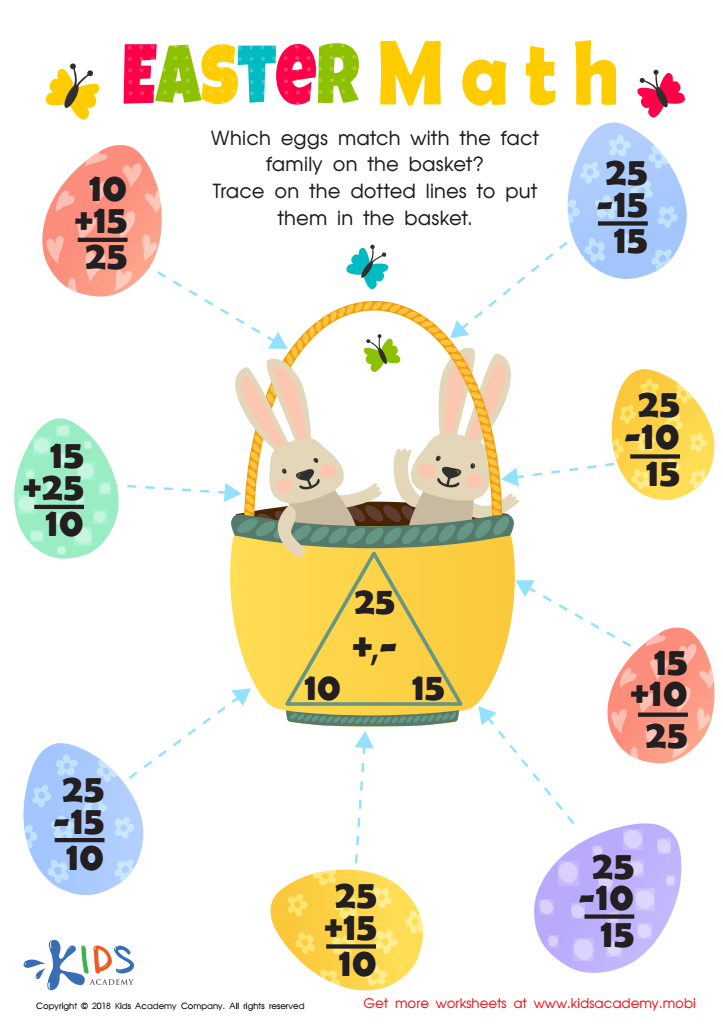

Fact Families: Easter Math Worksheet
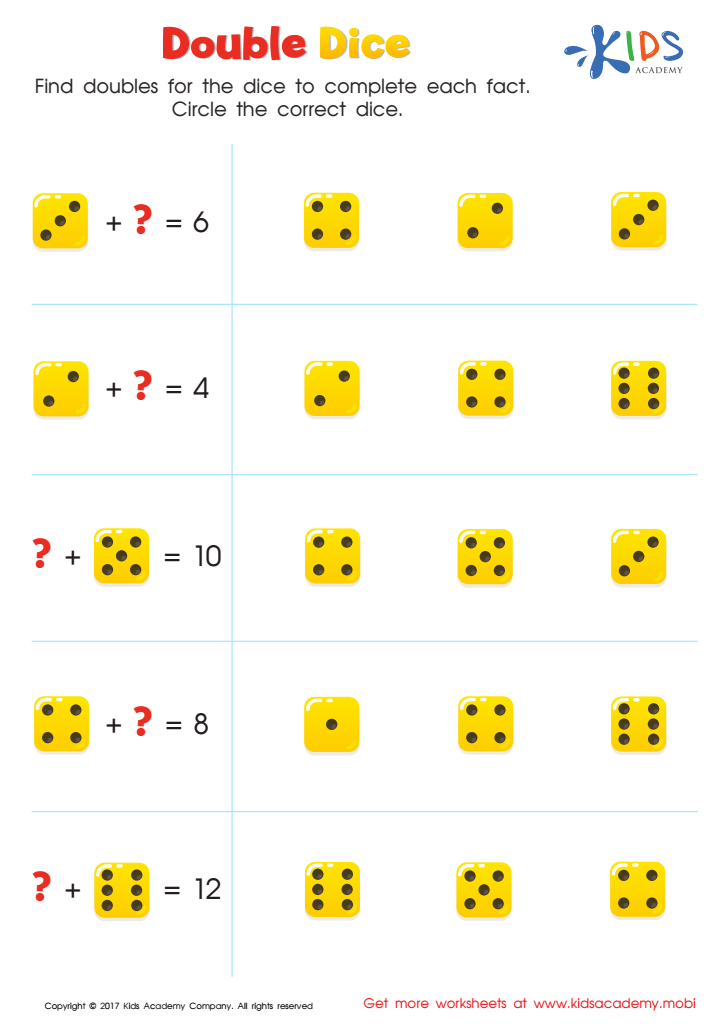

Addition Facts: Double Dice Worksheet
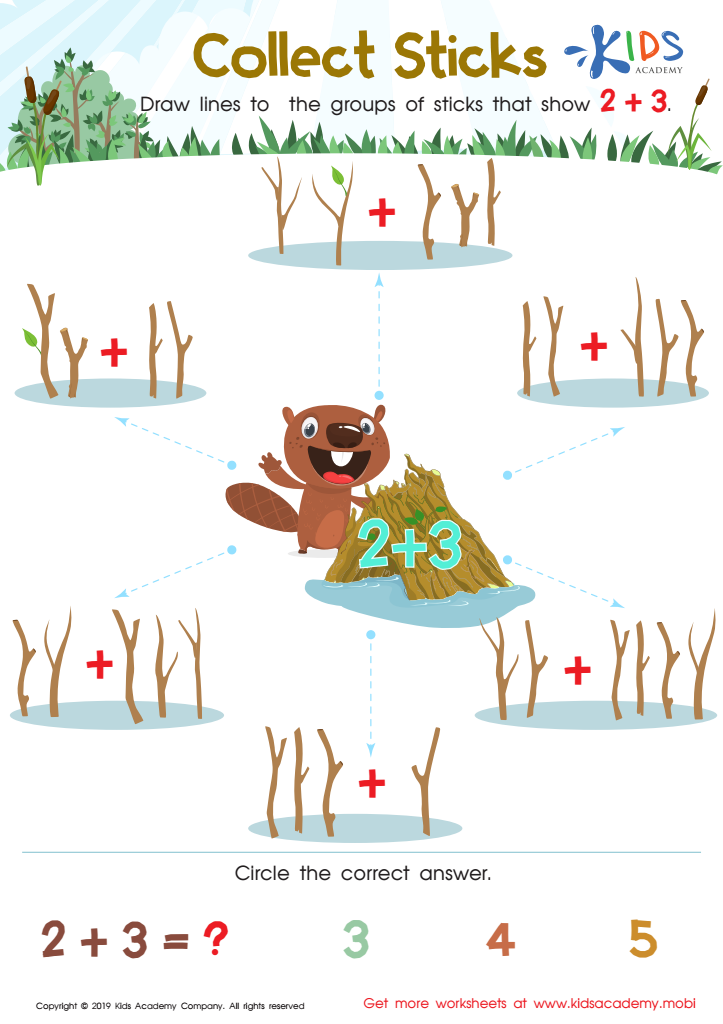

Collect Sticks Worksheet
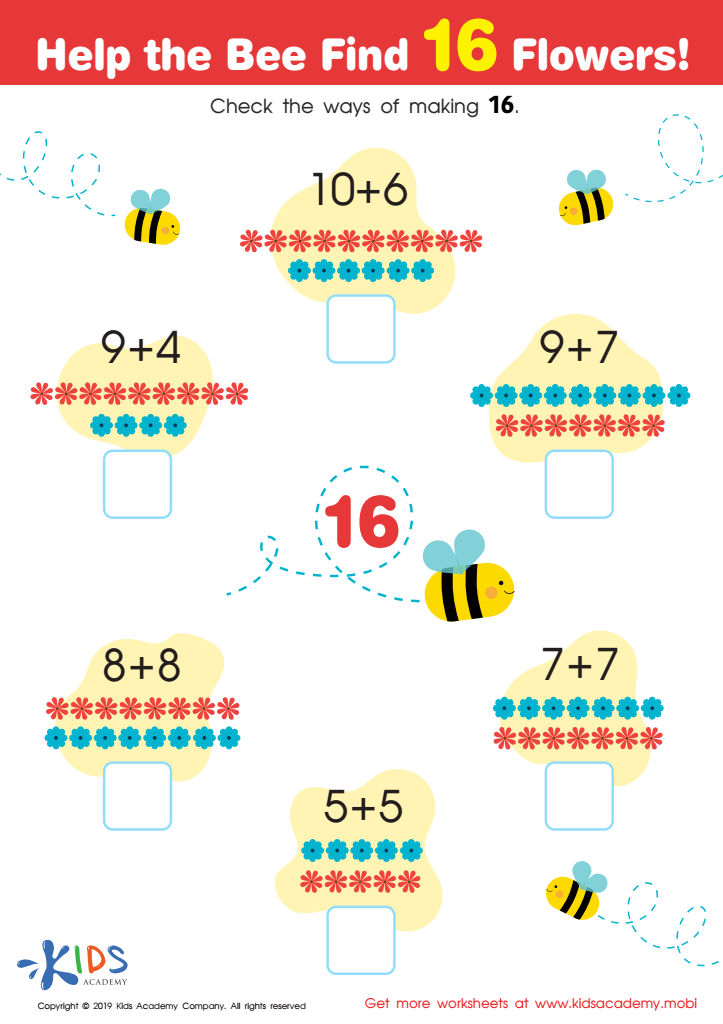

Help the Bee Find 16 Flowers Worksheet
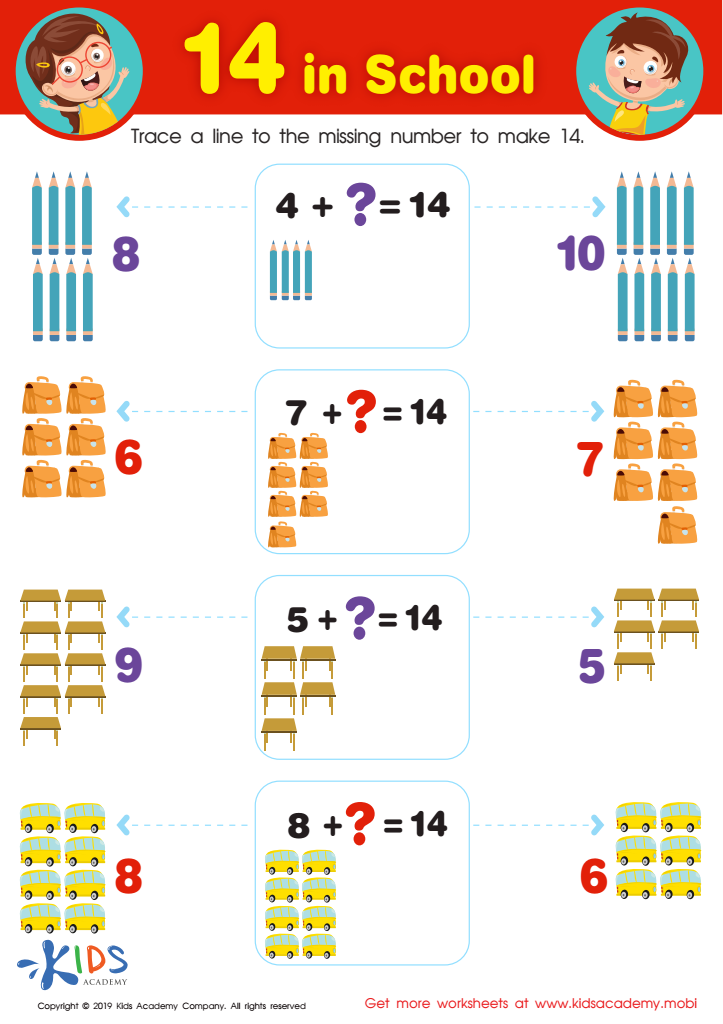

14 in School Worksheet
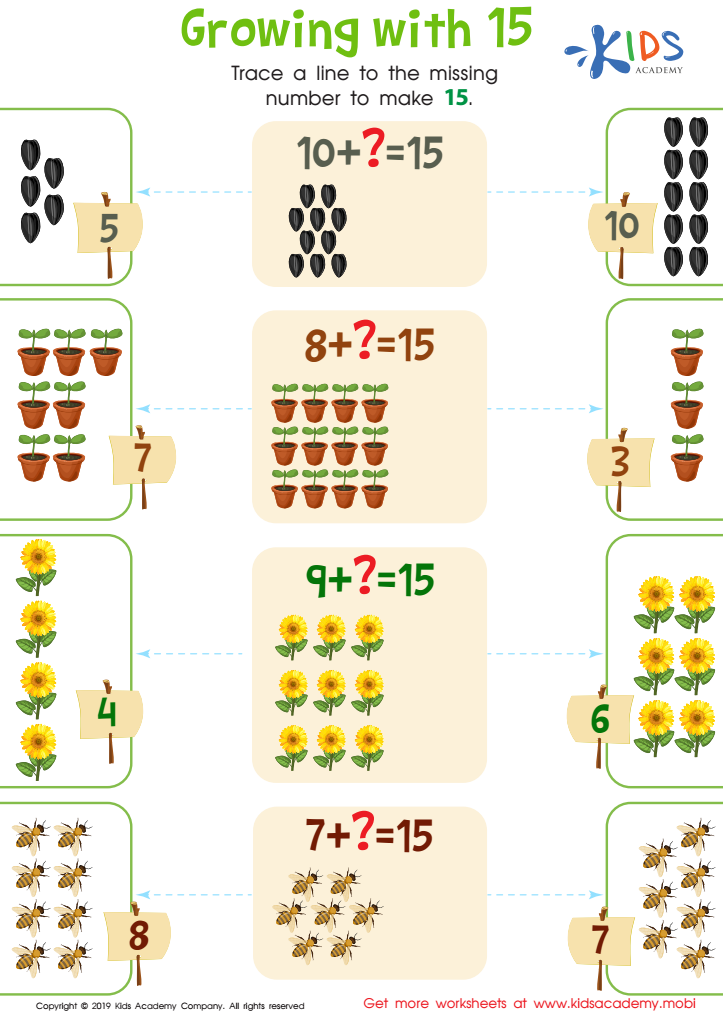

Growing with 15 Worksheet
Counting skills and normal addition are fundamental building blocks in early childhood education, especially for children aged 6-7.
At this age, children's cognitive development is at a critical stage where they begin to understand and internalize basic mathematical concepts. By mastering counting, children can learn to sequence, order, and recognize numbers, which is essential for their later learning in math and other subjects. Counting helps them develop one-to-one correspondence, an understanding of quantity, and the ability to compare and contrast numbers, all of which are critical for everyday communication and problem-solving.
Normal addition builds on these counting skills by teaching children how to combine groups of items, fostering a conceptual understanding of how numbers interact with each other. This process enhances their calculation skills, mental arithmetic, and number sense, which are crucial for more complex mathematical operations they will encounter in higher grades.
Moreover, developing these skills at an early age promotes confidence and a positive attitude toward learning. Children who struggle with basic concepts may face frustration and anxiety around math, which can affect their overall academic performance and self-esteem. By ensuring a strong foundation in counting and addition, parents and teachers can provide children with the tools they need for future academic success and practical life skills.
 Assign to My Students
Assign to My Students









